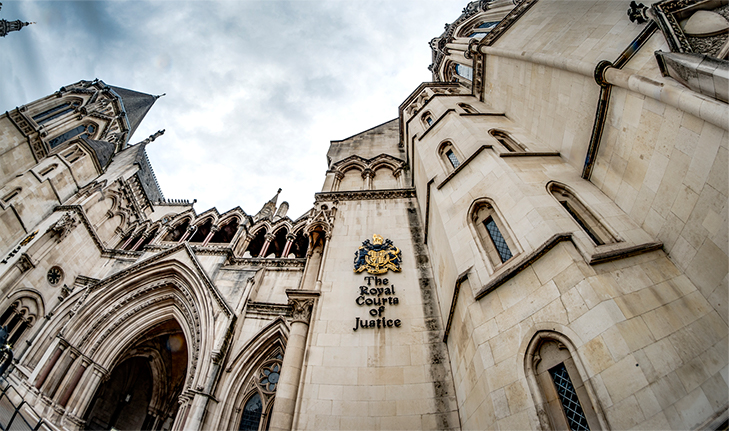Mozambique: 325 families from Mocímboa da Praia arrive in Mueda - Administrator
Privinvest to appeal London court ruling

File photo: O País
Privinvest says it is “deeply concerned” by the ruling handed down this Monday by the London Commercial Court in favour of Mozambique, that it believes “the judge’s ability to conduct a fair trial” was “deliberately sabotaged”, and that it will appeal the decision.
Privinvest begins by saying that Iskandar Safa and five Privinvest companies have faced a “hopelessly broad range of unfounded allegations of widespread bribery and corruption for many years”, and that it is “deeply concerned” by the conclusion of the court judge.
In a press release, Privinvest states that it “intends to appeal” the decision which, in its view, is “based largely on inference and not supported by reliable analysis”.
“All of Mozambique’s allegations of corruption of former President Guebuza, his son, the former chief of Mozambique’s security service, a senior official in Mozambique’s security service, the former national director of Treasury, former (and criminally convicted) employees of Credit Suisse and others have not been proven. Privinvest is, however, deeply concerned about the Judge’s finding to the contrary about Mozambique’s former Finance Minister, Manuel Chang. This conclusion, which Privinvest intends to appeal, is based largely on inference and not supported by reliable analysis,” the Privinvest press release reads.
“It is obvious that there would likely have been relevant documents with the Office of the President and SISE. Yet almost no documents were available at trial from those sources within Mozambique. And although it was clear to me that institutional and personal email was used across Government, there was a poverty of disclosure of that nature too. This was included in relation to Minister Chang, although I had at least some account of how some of his email was unavailable through loss,” a quote included in Privinvest’s press release reads.
English judge’s ability “deliberately sabotaged” by ‘hidden documents’ litigation strategy
In the same document, seen by newspaper O País, the institution maintains that “the ability of the English judge to conduct a fair trial on this key point [corruption of Manuel Chang allegations] has been deliberately sabotaged by Mozambique’s ‘hidden documents’ litigation strategy”.
“‘It is extremely troubling that, despite finding that Mozambique has been “‘let down by its own officials and office holders” and that “some officials and office holders in Mozambique have not helped their country as it has sought to meet its obligations to give disclosure of documents relevant to the issues. I have, frankly, to include President Nyusi among those office holders'”, the judgment appears to have forgiven these deliberate and blatant failings by the Republic, its President and its Office of the Attorney General (PGR)”, Privinvest states in the communique.
“As a result, Mozambique’s approach to this litigation risks having created a playbook for those wishing to bring cases to the London courts with no intention of playing by the English rules of fair play, that Privinvest expected to be enforced. This may leave other defendants in the horrific position Privinvest has found itself in: providing full disclosure of its own documents but left unable to get the same from its accusers or to fairly defend themselves when facing massive liabilities directly linked to the conduct of others, including parties who prefer to settle cases under pressure. Privinvest expected more of an English legal system that it had placed its trust in and when it had, as today’s judgement acknowledges, carried out ‘the proper performance of [its] disclosure duties’.”
Privinvest trusted the English justice system
Privinvest claims that “despite the criticisms in that ruling of those in power in Maputo, and the acknowledged and admitted criminal wrongdoing and other failures of banks and the IMF, it is Privinvest who now may face the burden of damages of hundreds of millions of dollars”.
The “unfair and unjustified consequence” of t the first instance ruling “bears no rational relationship to the reality and scale of the payments relating to former Minister Chang (payments which Privinvest maintains were legitimate business investments unconnected with Mozambique’s sovereign guarantees)”.
The ruling, Privinvest claims, “unfairly leaves Privinvest picking up the tab for voluntary settlements between Mozambique and major investment banks who willingly financed these projects and had acknowledged criminal culpability”.
Furthermore, the group stresses that it has remained committed ” to trying to get President Nyusi to acknowledge the truth of what he did and what happened when Privinvest entered into the projects with Mozambique many years ago”.
“Today’s judgment expressly leaves open claims against President Nyusi following ‘the end of his Head of State immunity‘. Privinvest will pursue these claims vigorously upon him leaving office in January. This reflects the fact that the English judge has recognised the abject failures of President Nyusi and his political elite to act in the best interests of the people they (for now) serve,” the statement reads.












Leave a Reply
Be the First to Comment!
You must be logged in to post a comment.
You must be logged in to post a comment.